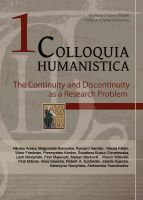Nationalism, Cyberspace and Convergence Culture
Nationalism, Cyberspace and Convergence Culture
Author(s): Piotr MajewskiSubject(s): Cultural Essay, Political Essay, Societal Essay
Published by: Instytut Slawistyki Polskiej Akademii Nauk
Keywords: cyberspace; nationalis; Macedonia-Greek dispute; YouTube
Summary/Abstract: When a large part of Earth’s population gained widespread access to the Internet and to new digital media, many social researchers suggested that this fact would disturb the cultural integrity of nations. It was predicted that non-territorial character of the web would lead to fragmentation and unprecedented diversification of people inside national communities. This would in turn result in the loss of collective feeling of national identity that is based on common images, representations and myths (see: Eriksen 2006: 1). The boundless web – the Internet – was to enable both individuals and groups, who had been living in a homogenous world of national cultures, to construct new, open identities. Nationalistic and tribal bonds were to weaken and ultimately disappear. The virtual world, with its unlimited powers and possibilities, was to replace these bonds with global transnational society, which would be willing to adopt new identity narrations and change old ones on a daily basis. Yet, as T. H. Eriksen aptly notes: “Although it is too early to make any conclusions regarding the long term effects of the Internet, experiences so far suggest that such predictions were gravely mistaken. In fact, nations thrive in cyberspace, and the Internet has in the space of only a few years become a key technology for keeping nations (and other abstract communities) together […] In a «global era» of movement and deterritorialisation, the Internet is typically used to strengthen, rather than weaken, national identities” (Eriksen 2006: 1).
Journal: Colloquia Humanistica
- Issue Year: 2012
- Issue No: 1
- Page Range: 65-79
- Page Count: 15
- Language: English

